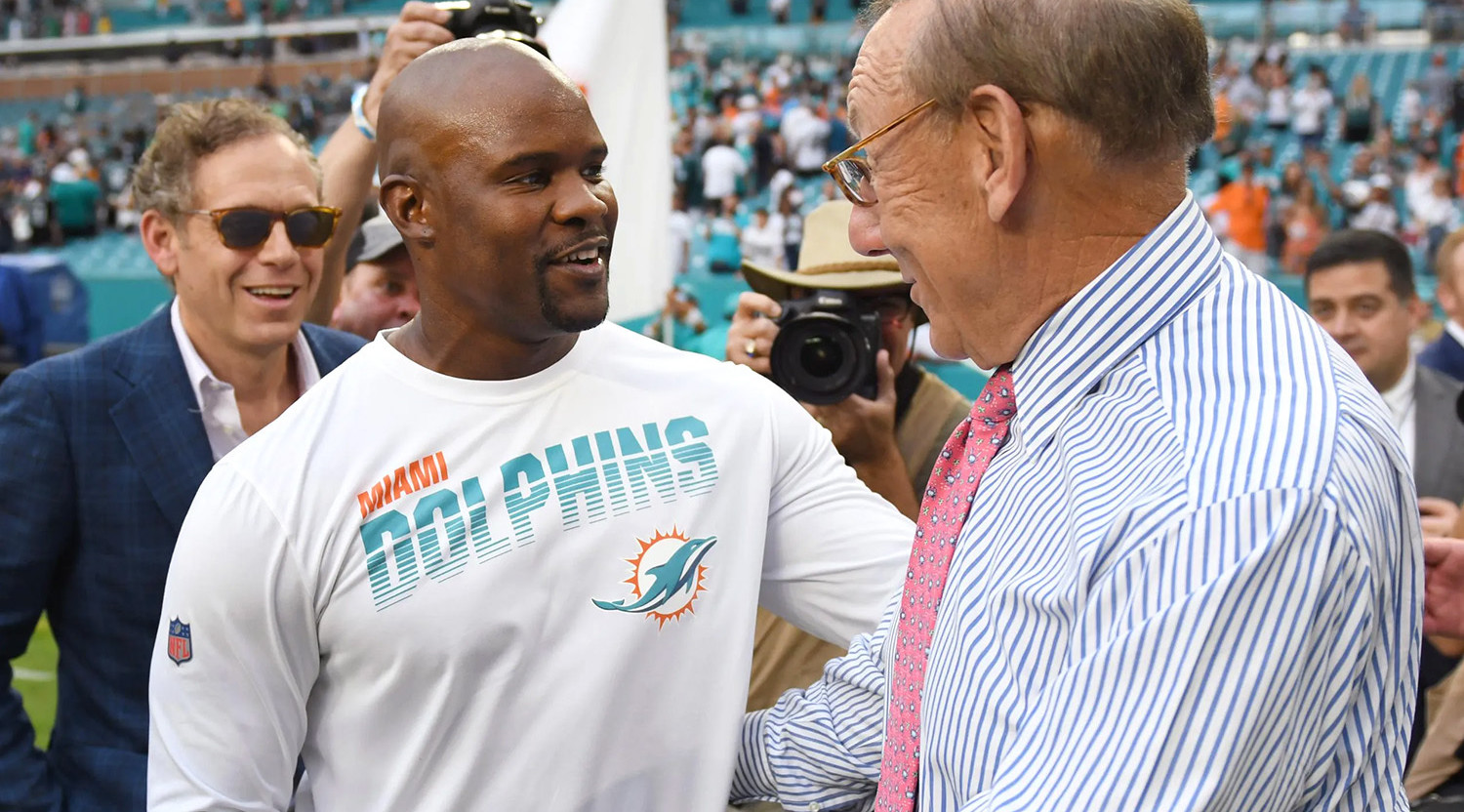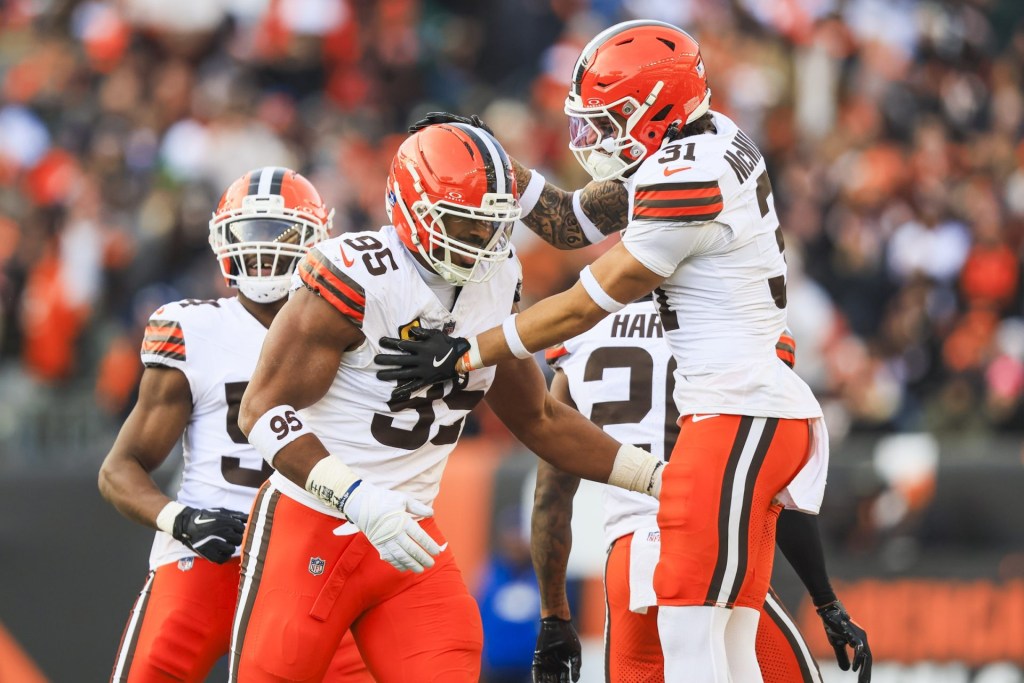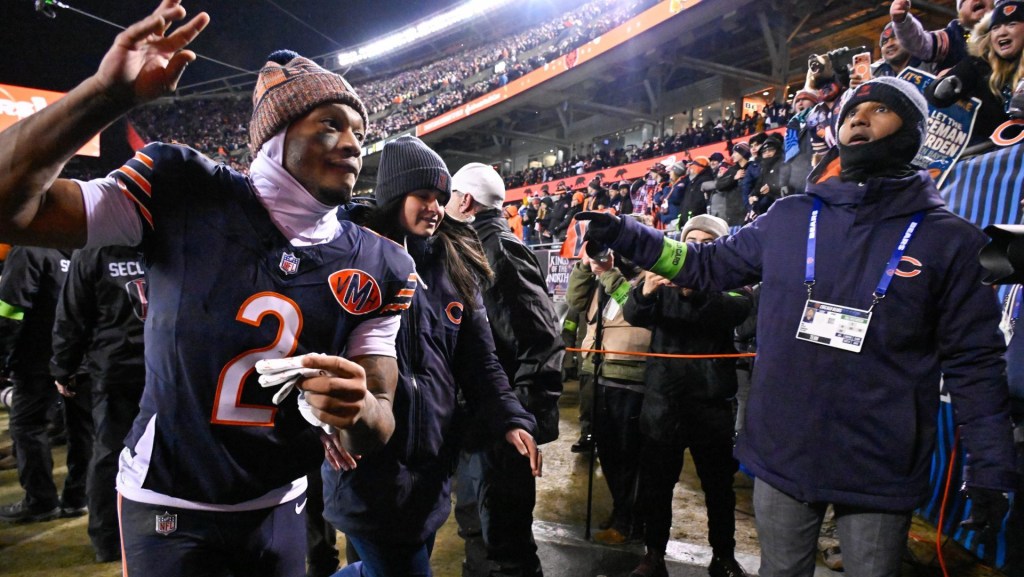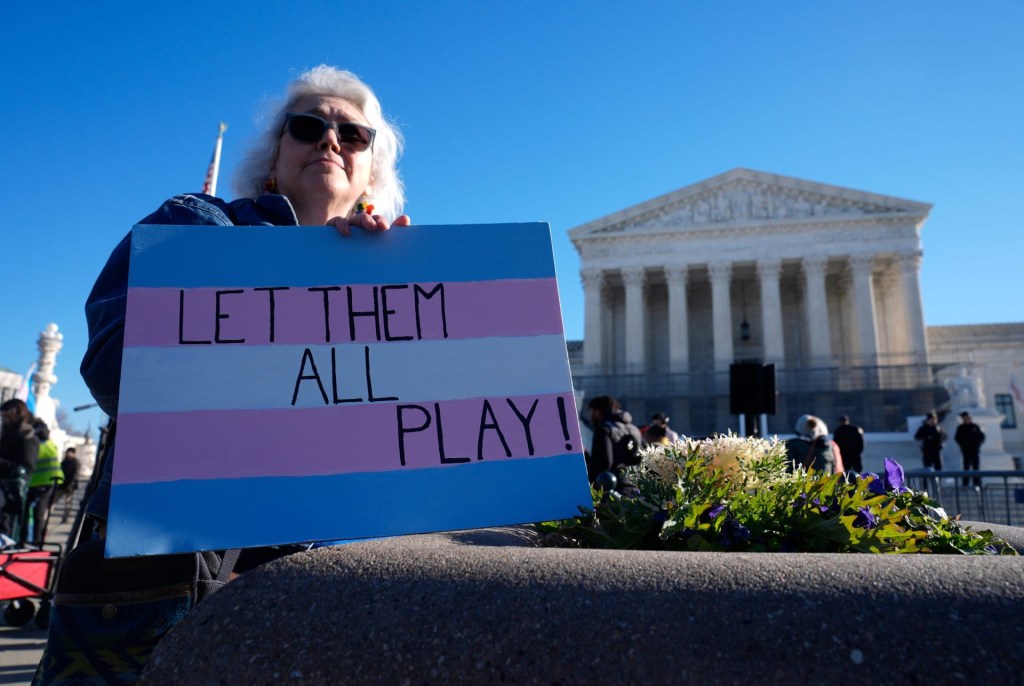Sunday is the sixth-month mark since former Miami Dolphins head coach Brian Flores filed a racial discrimination lawsuit against the NFL.
The case has inched along as Flores’ legal team has so far been able to keep the lawsuit in a New York federal court and out of arbitration, where the proceedings are secret and Commissioner Roger Goodell would become the ultimate authority.
The status of the NFL’s outside investigation of Flores’ claims — which include Miami Dolphins owner Stephen Ross allegedly offering Flores “$100,000 for every loss” — is harder to determine. The league tapped former SEC chair Mary Jo White in March to lead the probe.
A source with knowledge of the investigation told Front Office Sports that it’s “surprising” that White hasn’t concluded her investigation since the key figures in the case were interviewed by White and her staff at her firm, Debevoise & Plimpton, months ago.
The same source told FOS there have been indications that White has been able to corroborate at least some of Flores’ allegations.
While the allegations made against Ross and the Dolphins were initially the focus of White’s probe, there’s a chance it has expanded beyond that.
White also has an ongoing investigation into Washington Commanders owner Dan Snyder, an inquiry that started just on the latest harassment claim made against Snyder. (Snyder denied the allegations.) That investigation has since expanded to include allegations of financial improprieties.
An NFL spokesperson said there’s “no update” on White’s investigation of Flores’ claims.
“There are some very serious accusations and the league needs to address it internally as soon as possible if those accusations are true,” sports attorney Dan Wallach told FOS.
Ross called the accusations made by Flores, who is now a Steelers senior defensive assistant, “false, malicious and defamatory.”
The NFL initially said Flores’ claims “are without merit” when the original complaint was filed in February, but the league has since expanded the Rooney Rule, and Goodell described the lack of Black head coaches “unacceptable.”
Waiting Game
NFL investigations tend to wait on the justice system to play out in open criminal investigations before players or other league/team employees who are subject to the league’s personal conduct policy.
There’s less need for caution, however, in civil cases like Flores’ lawsuit, especially since it could take years to resolve.
“This case is not going to go anywhere at all in the 2022 calendar year,” Wallach said., “This year is gonna be devoted almost exclusively to motions over the arbitration issue and discovery. Those all have to be resolved by Judge [Valerie] Caproni before one iota of discovery is taken in this case.”
Last week, Caproni delayed the July 21 deadline for Flores’ attorneys to respond to the NFL’s motion to compel arbitration until the motion for discovery is decided.
Splitting Up Claims
Along with Flores, the class-action lawsuit also counts former Tennessee Titans and defensive coordinator Ray Horton and former Arizona Cardinals head coach Steve Wilks as co-plaintiffs.
Case observers see Caproni potentially breaking the case into pieces, sending some claims into arbitration while keeping others in her court.
“The coach and team/employer claims are more likely to be arbitrable because the arbitration language in the coaching employment agreement have fairly straightforward arbitration clauses,” said Wallach, co-host of the Conduct Detrimental podcast.
Flores’ lawyers argued in April’s amended complaint that the entire case should remain in federal court because Goodell “is not independent, unbiased or impartial.”
But the NFL has a good chance to get some claims — like Wilks’ allegation was “unfairly and discriminatorily fired” by the Cardinals in December 2018 — shifted to arbitration.
The league could have more of an issue getting other allegations moved out of court, like Flores’ allegation that he did a “sham interview” with the New York Giants before the team hired Brian Daboll in January.
“I could very easily see Judge Caproni decide this on a claim-by-claim, defendant-by-defendant basis,” Wallach said.
“Claims like those between Flores and the Dolphins on money he feel he’s owed is much more likely to be arbitrable than discrimination claims by Flores and the other defendants. There’s no directly applicable arbitration agreement in their employment contracts for those claims.”
Flores’ Diversity Push
Lawyers for Flores and the co-plaintiffs laid out 10 changes they’d like to see the league make to improve its hiring practices for minority coaches, including:
- The appointment of an independent monitor to enforce compliance with the league’s diversity initiatives, like the re-worked Rooney Rule that now requires teams to have at least one minority on its offensive coaching staff.
- A change to ownership rules and establishing a committee to seek out Black investors. The NFL has never had a Black majority and only one team (Jacksonville) has a non-white controlling owner.
- More transparency on the hiring and firing of coaches.
- A ban on forced arbitration.
There could always be a settlement in the case if the NFL agrees to many of the proposed changes.
“There are a lot of good coaches in our league, and a lot of them are Black and minority,” Flores told NPR. “They should get … opportunities.”

















